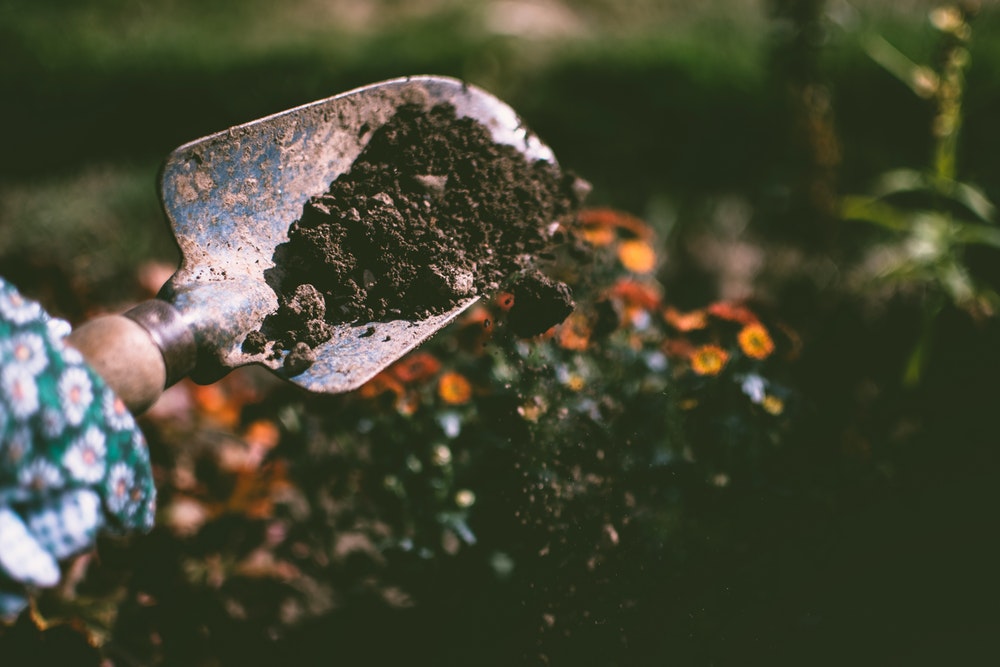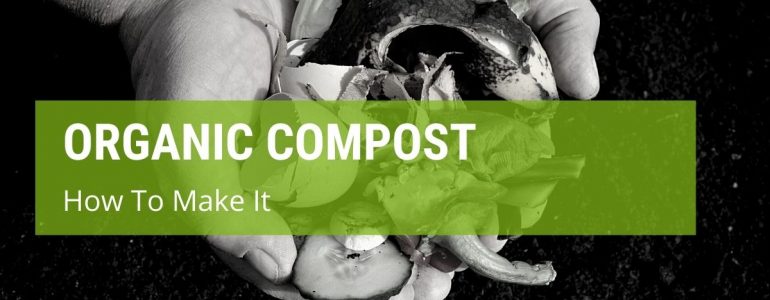Compost in the garden is an incredibly useful addition, especially if you are growing vegetables that need a lot of nutrients. You can buy compost from a garden centre, of course – or you could save money and make your very own! How to make organic compost for gardening is a great thing to do; making sure your compost is organic will give your veg the best start in life, and making it yourself will ensure that you know only the best stuff goes into it.
How to make organic compost for gardening

If you are starting your compost pile from scratch, you may want to build a frame first so that it doesn’t spill out and take over your garden. You can construct or buy a three sided box using pallets – this works very well as it contains the compost as well as allowing it to breathe.
- Start your pile on bare earth, to allow worms to get into the compost and so into your beds.
- The first layer should be a few inches of twigs or straw, to help with drainage and to aerate the contents.
- Layer your compost, with alternating “dry” and “wet” ingredients. “Dry” includes straw, sawdust, wood ash and leaves, while “wet” includes fruit and vegetable peelings, tea bags and even seaweed.
- You can add manure (horse, sheep or chicken poop is the best), and green manure such as grass clippings, to increase the nitrogen content of your compost pile.
- The compost should stay moist in order to work properly; you can either leave it open to the elements or add water to it yourself.
- If you need to add a little moisture to your compost pile, a great tip is to wrap a small pile of leaves in a fabric sack, then place this sack in a large container of water for around 3 days. Remove the leaves and sprinkle onto the pile, then pour over the liquid.
- Keep the compost covered too keep it warm and encourage the beneficial microbes – this will also prevent it from getting too wet from the rain.
- You should turn your compost pile once every few weeks; this will aerate the pile and add essential oxygen to help the composting process.
This video is a great guide on how to make your own organic compost:
Best things to put in compost
The best things to use to make your own organic compost are “green material” and “brown material”. The greens can be grass cuttings, dead plants, prunings, leaves and other plant material.
You can also, for your brown element, add cardboard, paper (newspaper is fine but don’t go overboard, as the print can be toxic) to add a bit of bulk.
Compost will also benefit from your cooking; adding fruit and vegetable peelings and teabags is also a great boost to your compost pile – just remember to not add cooked food leftovers to your compost heap, and avoid meat bones as this can attract pests like rats.
If you have vegetarian animals such as rabbits, chickens, guinea pigs or hamsters, the cleanings from the their enclosures can be added, but avoid droppings from meat eating animals such as dogs and cats.
You should avoid putting any plants that die of disease into your compost pile, as the pathogens can multiply and cause damage to any future crops.
Why is compost useful
When plants grow in the soil, they suck up the nutrients contained in that soil to fuel their growth. If nutrients are not replaced back into the soil, any crops you plant in it will not thrive as well, and if this cycle continues for years and years then you will end up with poor plants.
Replacing the soil’s nutrients in the form of compost will not only ensure that you get good results from whatever you plant in it, but it will also help other organisms like worms, insects and the rest of the ecosystem.
Using your garden waste as compost not only helps the soil, but also reduces your rubbish pile. You won’t have to throw away or burn any leavings from your garden or vegetable waste from your kitchen; simply make it into a neat compost pile and help out your refuse collectors!
When is compost finished
You’ll need to leave your pile for a bit before the compost is ready to use – it can take anywhere from four weeks to twelve months before your compost is at the right stage to add to your garden. You are looking for a dark brown or black colour, a crumbly smooth texture, and a sweet loamy smell.
Your compost pile will have reduced by about a third, and you may notice that is slightly warm. It is important to use only compost that is well rotted, because if the process is not finished it can attract pests such as rats, and may even damage your plants.
- Read also: Organic Gardening Pest Control Basics
Best uses for organic compost
Organic compost is an excellent feed for your soil and your garden, and will help you produce really good crops. It is best to mix your good, well rotted compost into the soil as you put your garden to bed for the winter; this will give the soil a chance to digest the nutrients before the spring.
Some plants like compost more than others – potato beds really benefit from a good, rich base of nutrients, while you should add it sparingly where you are planning to plant carrots – if the soil is too rich then carrots will fork.
This being said, all plants will do better with a bit of good compost added to the soil, so give the whole garden a treat and compost it well.
Final words
Using home made compost is a very rewarding part of organic gardening. It will use up a lot of your kitchen waste, as well as being incredibly good for your plants, and you have the added bonus of knowing exactly what has gone into it!







